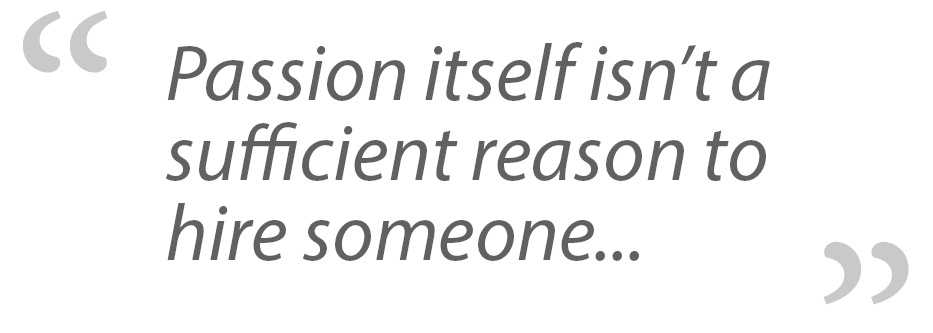
This post was written by CASE Executive-in-Residence and Sproxil Co-Founder Alden Zecha in April 2017. He has over 25 years of experience in more than 35 countries and has founded several companies, including SEAD Innovator Sproxil, Inc., a social venture that provides a consumer SMS and app product verification service to help consumers avoid purchasing counterfeit products, and We Scale Impact, a consulting firm that specializes in global health ventures.
Any startup, whether socially focused or not, faces resource constraints. They are especially challenged to find the right team members to help build an initial idea into a scaling enterprise. Founders often will take on any smart, motivated person for the “right price” (sometimes a volunteer) but in my experience from having founded several ventures, that approach can actually be more harmful than helpful. The most successful hires embody an organization’s culture, have the right skills for the role and demonstrate the capacity to quickly adapt.
You may have heard the saying that cultural fit is the most important criteria to hire on and I fully agree. If your organization operates strictly “by the book,” it’s highly unlikely a free-wheeling, unstructured employee will thrive in it. That doesn’t mean you shouldn’t have diversity in work styles at all but rather that some core organizational values shouldn’t be compromised. Think about the core values of the enterprise or maybe your venture’s mission or vision. There are likely several immutable concepts there and you should evaluate if the candidate passionately embraces those ideals or at the very least doesn’t oppose them. Discuss those values during the interview and see if the person reacts passionately, only somewhat positively or indifferently.
Passion itself isn’t a sufficient reason to hire someone though. The person needs to have the right skills for the job or be able to learn them very quickly. In a startup, time is one of your most constrained resources, so you can’t wait for a year while someone learns a new skill. Rarely can you find someone who can literally start being highly productive on day one because they still have to learn specific information about your organization. However, that’s very different than learning new skills. Skills take time to learn and practice to refine, while information can be obtained more quickly and one can (re)research it when needing to apply it. Too often I’ve seen ventures bring on passionate volunteers who are extremely well meaning but because of their lack of skills end up draining managerial time away more than adding value.

For example, at Sproxil when there were only two of us launching the venture we wanted any help we could get, so we brought on a student intern who was extremely passionate about our work. She was extremely eager, energetic and motivated but didn’t have the skills to review information and then either take or recommend next steps, which is what we really needed. We could only assign her basic clerical tasks which became an unfulfilling experience for her as she felt that her passion wasn’t being well applied and understandably that she wasn’t growing and learning. We had a clear mismatch of needs, skills and expectations and both sides felt it wasn’t a positive experience, though we definitely learned from it and improved going forward.
Rarely can you find a candidate within your budget and with the complete set of skills that you need, which is when the third component of successful hiring – capacity to quickly adapt – comes into play. Startup organizations are constantly changing – how they do things, where they deliver their offerings, and maybe even what they are providing. All team members have to be able to adapt and continue to contribute within that changing landscape. Candidates that show a high ability to learn rapidly and the capacity to adjust on-the-fly tend to do better in startups. They can continue to move forward, even when the ground beneath them may be unstable. To help determine this attribute in a candidate, consider asking during the interview for an example of a situation that went wrong and see how the person revised their actions to accommodate that and still achieve their goal.
Hiring the “right” person is always difficult and we often feel that passion is more critical than skills, especially when we are budget constrained. However, I believe that if you balance passion, skills and adaptability you are more likely to find someone who will not only want to join your team, but who will contribute and thrive in your organization for the long term.

